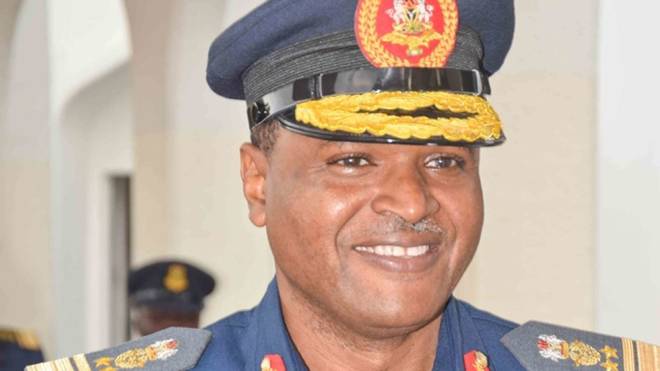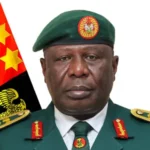The Nigerian Air Force (NAF) will soon establish three additional annex of its Regiment Training Centre (RTC) to train more special forces in tackling the challenge of insecurity facing the country, the Chief of Air Staff (CAS), Air Marshal Sadiq Abubakar, has said.
Speaking at the graduation of 51 who just completed the Special Forces Instructors Course 2/2019 at the RTC NAF Base Kaduna over the weekend, he said the new annex include Ipetu Ijesa in Osun state, Bauchi in Bauchi state and Owerri in Imo state.
He said the primary reason for the establishment of the annex’s is to ensure security of Air Force bases and security of critical assets, as well as to participate effectively with other security agencies in dealing with the internal security challenges in the country.
“It is a work still in progress and with this training, we hope to establish additional Regiment Training Center (RTC) annex in Ipetu Ijesa in Osun state, Bauchi in Bauchi state and hopefully by the beginning of next year in Owerri in Imo state.
“We use to rely on people outside to train us, but today, we have trained about 100 people which is the 2nd batch, meaning that we are building capacity to train on our own.
“To have developed this level of capacity building, we will certainly have impact in what we are doing in other places.”
Abubakar further disclosed that about 250 Special Forces have been deployed to Zamfara state, 50 along Kaduna-Abuja highway and quite a number of them in Taraba and Benue states, all adding value to other security agencies.
The CAS urged the 51 graduating student to exhibit the highest level of professionalism in their future conduct, reminding them that they have become part of the front line in defence of the nation.
Abubakar thanked Israeli four troops team for their efforts in training their personnel and assured that the cordial relationship existing between them would be sustained.
Earlier, acting Commandant of the Regiment Training Centre, Wing Commander Stephen Sekegor, explained that the Special Forces went through a 10-week training where they were subjected to medical and physical screening as well as the training proper.
He noted that the special forces underwent technical shooting, endurance, tactical shooting, basic night shooting, dry drill, breaking and entry, discharge from vehicles, running and breaking of covers, convoy movement as well as weapon and ballistic zeroing.
He added that 51 out of the 57 students that reported for the course completed the course.

 Join Daily Trust WhatsApp Community For Quick Access To News and Happenings Around You.
Join Daily Trust WhatsApp Community For Quick Access To News and Happenings Around You.

